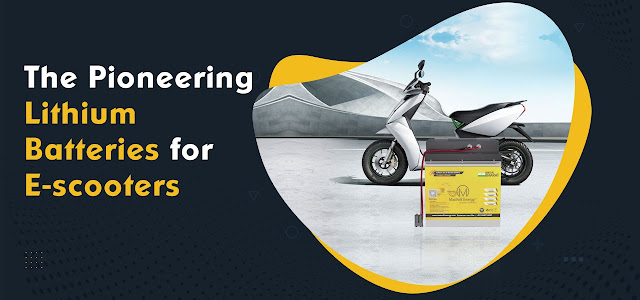What Role Do Lithium Batteries Play in Energy Storage?
The incredible power of lithium-ion batteries has revolutionized the world. Have you ever thought that your vehicles would not require diesel or petrol? Will your cars ever run on rechargeable batteries? So the answer is that the world is currently moving toward green energy. In the next decade, batteries will play a pivotal role in the shift away from fossil fuels. These batteries are known as lithium-ion batteries. Maxvolt Energy is contributing toward green energy as the manufacturer of lithium-ion batteries in India.
Electric vehicles and energy storage are now financially viable for the first time in history due to an increase in lithium-ion battery production that has caused prices to drop by 85% over the past ten years.
Batteries powered our phones and computers in 2010. The end of the decade saw them powering our vehicles and homes as well.
For the last ten years, a boom in lithium-ion battery production pushed prices down to the point where electric vehicles became economically viable in terms of cost and performance for the first time in history. Utility-scale storage is the next phase and will define the next decade.
The success of these Li-ion batteries has led to numerous businesses creating larger-format cells for energy-storage applications. In the future, electric vehicles (EVs) powered by lithium-ion batteries will provide tremendous synergies. The versatility of Li-ion technology in EV applications, ranging from small high-power batteries for power buffering in hybrids to medium-power batteries providing both electric-only range and power buffering in plug-in hybrids to high-energy batteries in electric-only vehicles, has a similar value in static energy storage.
Li-ion batteries have been used in a wide range of energy-storage applications, from a few kilowatt-hours energy-type batteries in residential systems with rooftop solar arrays to multi-megawatt containerized batteries for grid ancillary services.
Our energy infrastructure is undergoing a significant transformation. Renewable energy sources such as wind and solar provide extra electricity, threatening the system's stability. Energy storage is vital for balancing supply and demand and absorbing oscillations. Lithium-ion battery storage systems are the most prevalent and effective ones.
Combined with a solar energy system, lithium solar batteries can store excess solar energy. Rechargeable technologies such as cellphones and electric vehicles use lithium-ion batteries.
Rechargeable batteries store energy from multiple sources and can be recharged later. The electrochemical power of the battery can be discharged and supplied to buildings, electric automobiles, enterprises, and other industrial and commercial facilities if necessary.
It is a multi-component energy storage system that can store various types of electrochemical energy for future use.
The advancement of battery technology makes it possible for homes, large industrial sites, and utility grids to be powered by lightweight, cost-effective technologies. Structures, towns, communities, and even entire islands can be powered by battery storage and green energy.
You may learn more about energy storage solutions by visiting maxvoltenergy.com.
.jpg)
.jpg)


Comments
Post a Comment